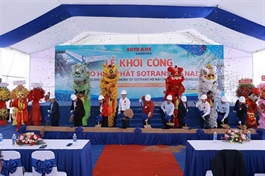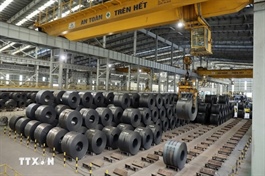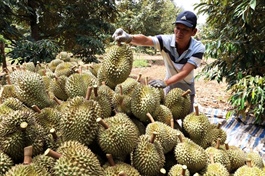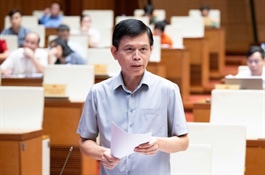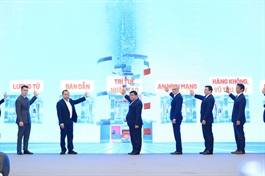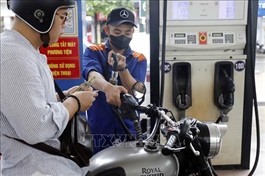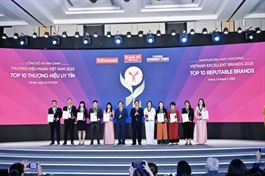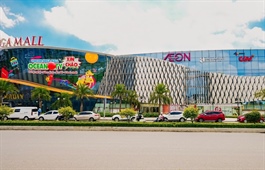Solutions required on EPR obligations
Solutions required on EPR obligations
Manufacturers are proposing a series of solutions to reduce their financial burdens when implementing extended producer responsibility, and simultaneously ensure circular production.
The Ministry of Agriculture and Environment (MAE) is seeking public comments on the draft amendments to the 16 laws in the areas of agriculture and the environment.
The draft law forms part of Vietnam’s broader effort to streamline administrative procedures, strengthen decentralisation, and address long-standing bottlenecks in legal and regulatory frameworks, all heading towards a smooth green transition.
In particular, the Environmental Protection Law is under review, with provisions on extended producer responsibility (EPR) identified as one of the key discussion points.
At a consultation workshop organised by the Legal Department under the MAE and the Vietnam Agriculture and Environment Newspaper, Jonathan Sourintha, co-vice chair of the Circular Economy Working Group under the European Chamber of Commerce in Vietnam’s Green Growth Sector Committee, shared industry perspectives on EPR, including challenges related to packaging, recycling costs, and compliance pathways.
“Vietnam needs strong incentive policies to promote green economic development. One of the specific proposals is to exempt recycled plastic packaging from the EPR obligation. This mechanism will encourage businesses to switch to using environmental-friendly materials on a larger scale,” said Sourintha.
“If the policy needs more time to be completed, we hope that Vietnam can apply a mandatory recycling rate with a lower financial fee for recycled plastic packaging than for traditional packaging. The ceiling for adjusting the mandatory recycling rate for recycled plastic should be a maximum of 2-3 per cent per cycle, to match Vietnam’s current collection and recycling capacity and infrastructure,” he added.
Regarding the regulation on penalising businesses that have not fulfilled their recycling obligations, the ESG Working Group of the British Chamber of Commerce in Vietnam has proposed that it is necessary to change in an open direction, allowing businesses to have more options in fulfilling their recycling responsibilities.
“It should add a provision allowing businesses to combine two methods of implementing EPR at the same time, including the regulations on self-organising recycling and making financial contributions,” said the working group’s head, Le Thi Hong Nhi.
“Thus, if businesses have not completed the required recycling volume, they can pay the remaining amount to the Environmental Protection Fund instead of being fined. This is a flexible solution, reducing pressure on businesses and encouraging them to proactively invest in recycling,” Nhi added.
The options were collected as the basis to complete the draft law, which will be submitted to the National Assembly with the hopes of taking effect from 2026.
Producers and importers are striving to implement EPR and seeking models suited to their capacities. According to the information from the Vietnam Beer, Alcohol, and Beverage Association (VBA) at a seminar a fortnight ago, the majority of companies have become familiar with the regulations and participated in training sessions organised by the MAE.
Regarding compliance methods, about 80 per cent of companies, mostly small and medium-sized, opted to contribute to the EPR fund; 20 per cent combined fund contributions with internal initiatives; and nearly 10 per cent delegated responsibilities to recycling units.
“Challenges remain. Many types of packaging, such as glass, aluminium, and multilayer cartons, still lack effective recycling systems. Vietnam currently has no facility to recycle aluminium cans into rolled aluminium for reuse in production, resulting in high costs and limiting recycling efforts,” said Chu Thi Van Anh, vice chairwoman and secretary general of the VBA.
To address these challenges, the VBA proposed to ensure reasonable EPR costs. Fund contributions or recycling expenses should be considered legitimate and deductible costs in tax settlements to protect business interests. In addition, the association seeks approval to provide incentives for dual-role recyclers.
Companies that both collect/recycle and use recycled packaging should receive partial exemptions from independent collection obligations, encouraging integration of recycling activities into the value chain.
Additionally, the MAE is currently drafting a decree on EPR, specifically regulating the recycling responsibility for products, packaging, and waste collection and treatment by producers and importers.
“EPR is a policy with a broad regulatory scope that involves stakeholder groups such as manufacturers, importers, and recycling enterprises. However, in practice, many businesses still face challenges in accessing and fully understanding this regulation,” said Nguyen Hung Thinh, deputy director of the Department of Environment under the MAE.
In response to these challenges, the development of a separate decree fully dedicated to EPR is both necessary and reasonable, Thinh explained. “By consolidating all provisions into an independent legal document, this effort addresses existing shortcomings and systematises all relevant regulations in a focused, consistent, and transparent manner,” said Thinh. “This will facilitate businesses in referencing and fulfilling their responsibilities, and assist government agencies in providing guidance, managing, and monitoring the mission’s implementation.”
- 09:15 06/10/2025








